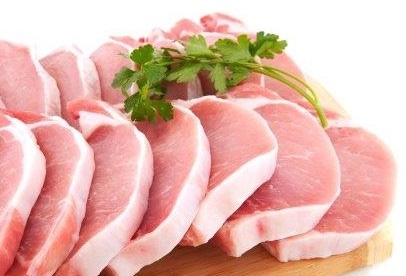Hong Kong Heritage Pork consolidates local supply chain
Consolidation allows company to vertically integrate its supply chain wholly within Hong Kong borders.
December 28, 2020

For several years, local and mainland China pig farms have been plagued by outbreaks of the African swine fever. While it remains harmless for humans, it has had dire consequences for the pork industry both in mainland and Hong Kong. According to data from the Food & Environmental Hygiene Department, the price of pork at one point doubled due to the curbed supply chain. Despite the hurdles, a local company, Hong Kong Heritage Pork, says it is managing to circumvent the problem by consolidating its vertically integrated supply chain wholly within Hong Kong borders.
With 20 retail outlets spread across Hong Kong, Hong Kong Heritage Pork's business model allows it to keep the price of the pork at a reasonable level without sacrificing quality. The company has found success in the market and expects growth to continue in 2021. "We are just giving back to the supportive community," says John Lau Hon-kit, managing director of the farm.
Lau's farm breeds a range of purebred pigs, including British Berkshire, Danish Landrace and Spanish Duroc. All of the breeds have pedigree certificates and were originally imported from the U.S. Without a doubt, the Berkshire breed has become the company’s most popular breed among the Hong Kong market, known for producing quality meat.
Despite this, the primary source of pork in Hong Kong remains the mainland, which supplies more than 95% of the pigs. As it stands, Hong Kong Heritage Pork is able to supply the city with 30-50 pigs a day, which constitutes 20% of the total local pig supply in Hong Kong.
Lau remains confident in the face of swine flu outbreaks largely due to steady sales and the fact that his business model requires no middlemen. Pigs are transported straight from the Lau Fau Shan farm to the Sheung Shui slaughterhouse, a much shorter journey in comparison with their mainland counterparts, before being sold at one of their many retail outlets across Hong Kong.
Furthermore, by selling directly and ensuring quality from farm to retail, Lau and his company can invest in better quality technology and feed. With equipment from the Netherlands, Lau established a pig farm that effectively prevents flu outbreaks, reduces the risk of spreading infectious diseases and keeps the pigs warm, comfortable and well-fed. By separating the pigs at different ages, they can further streamline the process and ensure the pigs lead healthy lives at the farm.
No antibiotics, hormones or additives are added at any point during the process, and the pigs are fed with high quality EU-certified feed that contains no pork products. Instead, Lau's pigs are fed with a nutritious mix of corn and soybeans alongside filtered mountain water.
Much of this is done under the auspices of the farm's very own livestock consultant. Being the only pig farm in Hong Kong that seeks veterinary consultation, Hong Kong Heritage Pork gets regular veterinary visits to ensure the health and safety achieve international standards.
With the growth of his business, Lau is certain that the local pork industry will thrive, and his breed of local pigs will continue to enjoy sales across Hong Kong. For now, one thing is for certain: "pork is just as essential as rice for Chinese cooking, and a steady stream of loyal customers supports the retail business," says Lau.
You May Also Like



